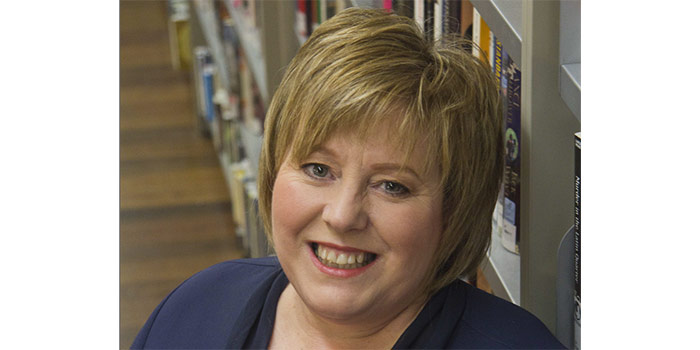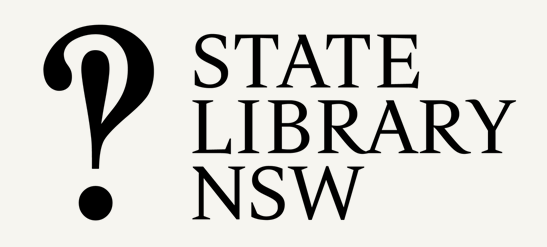Vanessa Little, Director of Libraries ACT, tells us about her career path and the challenges of managing a library network within a diverse government portfolio.
Tell us briefly about your career path.
I started out in libraries in 1978 as a library assistant at the then Woodville Library Service. This was in the golden era of public library development in South Australia. I undertook my undergraduate library degree part time while I worked full time.
After my degree I won the position as Chief Librarian at the then City of Henley and Grange. These two councils are now amalgamated. Here I learned what it was like to work in a country town because Henley and Grange was a country town right in the middle of the city.
I was offered a secondment to work with the central support service to public libraries in SA with the unfortunate name of PLAIN (Public Libraries Automated Information Network) during the period when we were developing the first ever (in the world!) library online purchasing system. Learned ICT people in the SA Government told us it couldn’t be done, it was too ambitious, but we proved them wrong (although there were lots of sleepless nights)! Through this time I won the position as Associate Director Public Library Services (State Library of SA) managing PLAIN and its host organisation.
I had a sabbatical from libraries between 1997 and 2002 when I worked with the SA Government’s Information Economy Policy Office. It was good experience but I soon realised that policy wasn’t my game, so eventually I moved to Melbourne to set up the Hume City Council’s Global Learning village. Hume is home to some of the most disadvantaged people in Australia. It is highly multicultural and is multi-faith. It was a privilege to work with such wonderful, diverse and positive people.
When I left Hume, we had established a 350-person collaboration across all sectors and professions to assist the community to become lifelong learners. The public library system of the council was seen as the base from which schools, community houses, private training providers and others involved in learning came together into one ‘village’.
Now I am in Canberra as the Director, Libraries ACT, with responsibilities for the ACT Heritage Library and nine public libraries. At the moment I am also managing the National Arboretum Canberra – a collection of hundreds of thousands of trees!
Along the way I was the first women ever elected to Local Government Managers Australia (was the Institute of Municipal Management), I’ve been President of ALIA, undertaken learning city consultancies for governments in Canada and was a finalist in the Telstra Business Women of the Year 2014.
What is the most challenging thing about leading a library in the digital age?
There are two, really – one is how to resource all of the fantastic things we can do in the digital age (staff, technologies and projects) and the other is the neverending bean counters who think that Google is the answer to everything and we should close libraries.
What has been the most difficult or rewarding moment of the past 12 months?
The most rewarding was when, in December 2014, our Minister Shane Rattenbury endorsed our new Libraries Literacy and Learning Strategy. This strategy puts the library service at the centre of the literacy agenda, cements our role in the digital world and recognises the ACT Heritage Library as having an important (if small) role in collecting and maintain the national record.
Where do you see your library in five years?
Still at the centre of community learning and life in Canberra; digital services are no longer new, they’re core business; we are collecting, preserving and making accessible digital as well as hard copy information and lots of people are using it; community self-publishing is thriving through the library’s digital capabilities; we are more efficient than ever in terms of systems and processes; we have 100 per cent membership and are one of the first places a new baby visits; our learning city program in collaboration across the government, community and private sectors has significantly reduced the 31 per cent of adult Canberrans with reading and writing difficulties; we are an employer of choice for librarians and library support staff; we are still the primary place in the community where socially isolated people come to engage with their community; there has been further growth in the partnerships across Government where they use libraries as their conduit to community conversations, consultation and engagement.
In your time with NSLA, has there been a piece of work that has particularly resonated with you?
The recent discussions/decisions about digital infrastructure are really important to a small jurisdiction like the ACT. We need the same functionality and services as our big brothers and sisters, but we will never afford to do this on our own. I really appreciate that the ACT is included in all NSLA activities and for the generous collegiate way that NSLA decisions, programs and projects are shared with the ‘minnow’ jurisdictions like us. I learn such a lot from my NSLA colleagues too.
What are some of the opportunities and challenges of working in a diverse directorate, such as Territory and Municipal Services (TAMS)?
TAMS is the directorate most like a city council in the ACT, so we are administratively with roads, waste management, the ACTION bus services, city services and cemeteries. We also have some state-related programs such as the Parks and Conservation Service and, believe it or not, the National Arboretum Canberra, which is a 250-hectare collection of trees.
So sometimes getting your voice heard over competing services is difficult. However the eclectic nature of the organisations makes for interesting partnerships and programs for the community. It also enables me to learn about many new areas. For example, I have had several stints as the Director of the National Arboretum Canberra in the last three years, as I am for the next three months. I also get to act in the Executive Director positions sometimes, which means that I learn about bio-security, dog management, waste management, lawn mowing, cemeteries, wildlife and park management and so on. It’s never dull!










